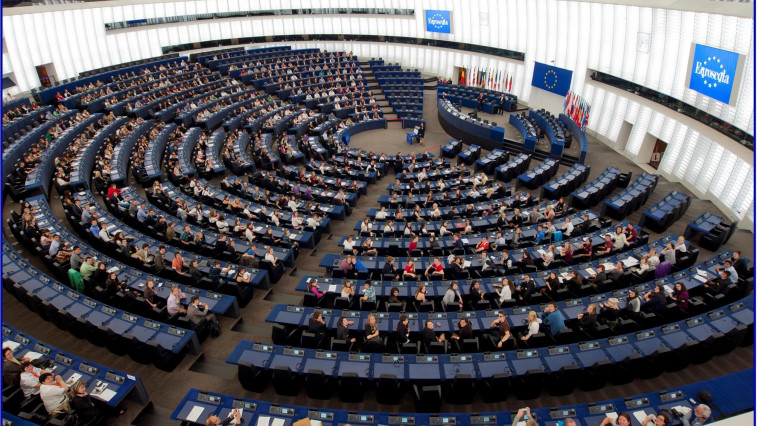European Parliament Vote Brings Georgia, Ukraine Closer To Visa-Free EU Travel

A today's vote in the European Parliament has brought the goal of visa-free travel to EU Schengen Zone countries one big step closer to reality for citizens of Ukraine and Georgia.
The parliament approved a mechanism that would allow for the suspension of visa-free regimes with Ukraine and Georgia under certain circumstances once they are in place. The vote was 485 to 132, with 21 abstentions. The EU lawmakers are now set to vote on the visa liberalization itself for Georgia in January, and it is possible that they will vote on Ukraine in February.
The actual visa-free regimes for both countries will kick in when the suspension mechanism is legally adopted and published in the EU’s official journal, which requires translation and other work that is expected to take up to eight weeks.
Both the EU member states and the European Parliament gave the green light for free movement for Ukrainian and Georgian citizens earlier this autumn, but struggled to agree on the suspension-mechanism text that had to be in place before granting visa liberalization. A compromise was struck last week that will give both individual EU member states and the European Parliament a say in suspending the visa-free regime if the rules are violated.
Visa requirements can be reintroduced temporarily if there is a surge of citizens from a non-EU country like Ukraine or Georgia staying irregularly in EU territory or if nationals from that country are deemed to pose a security threat. They can also be reintroduced if there is a rise in unfounded asylum applications or a lack of cooperation on returning migrants.
Ukraine and Georgia are seeking greater integration with the West but have been frustrated with the pace of EU moves to bring them closer. Both former Soviet republics have faced military aggression from Russia in recent years, as well as other efforts by Moscow to increase its influence.
The EU Schengen Area countries are Austria, Belgium, the Czech Republic, Denmark, Estonia, Finland, France, Germany, Greece, Hungary, Italy, Latvia, Liechtenstein, Lithuania, Luxembourg, Malta, the Netherlands, Poland, Portugal, Slovakia, Slovenia, Spain, and Sweden.
Source: rferl.org














